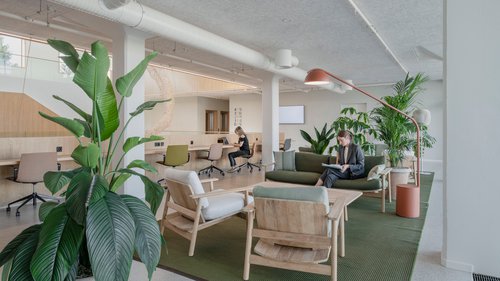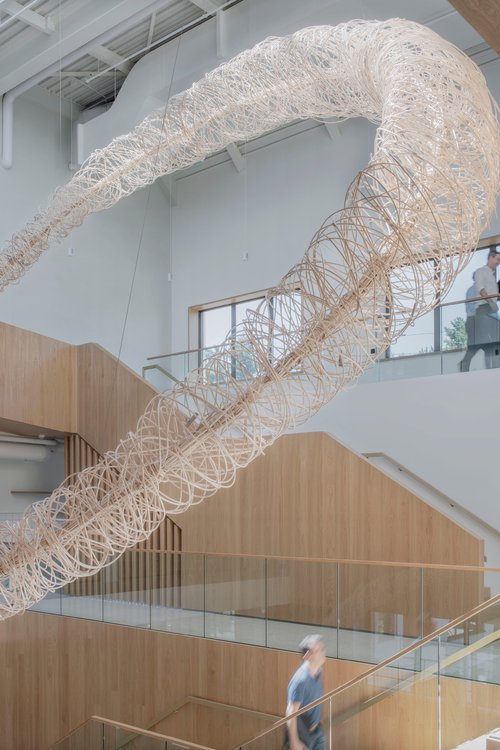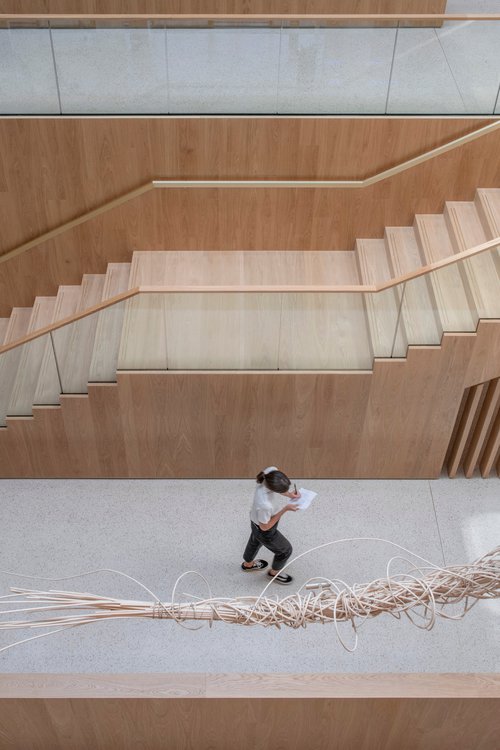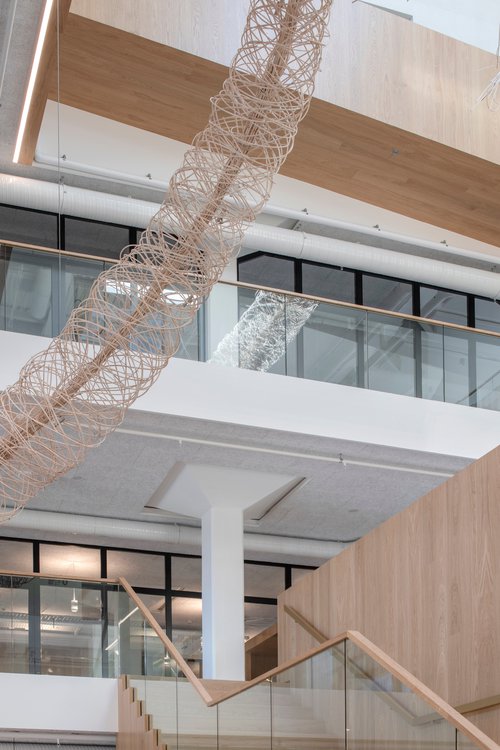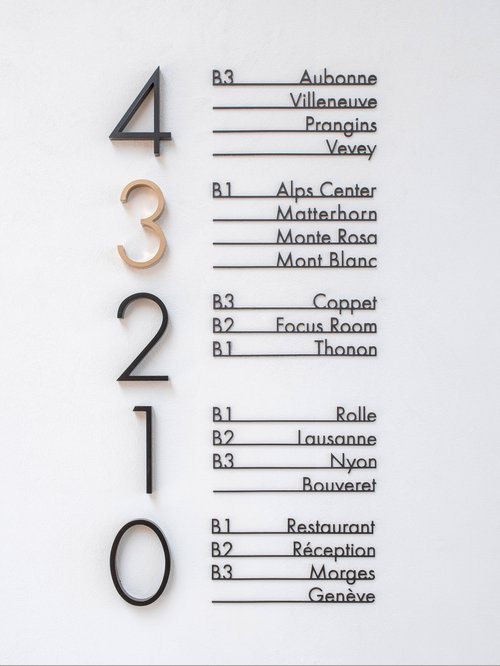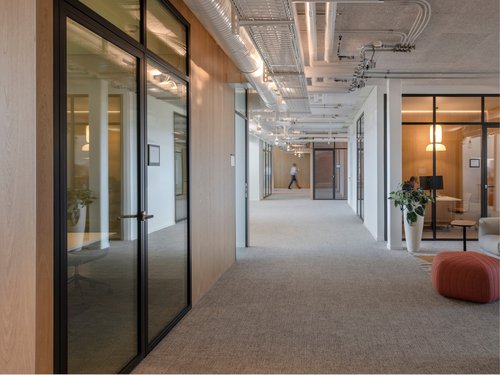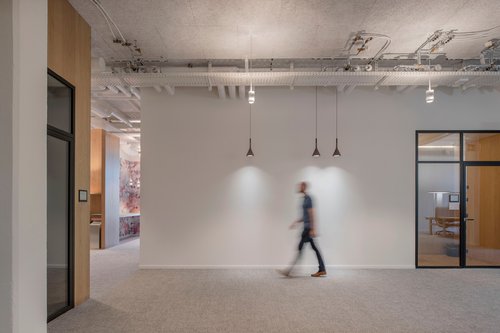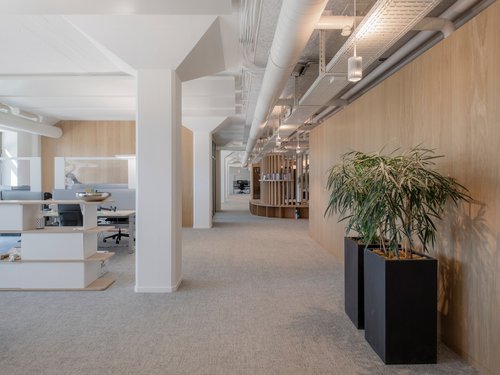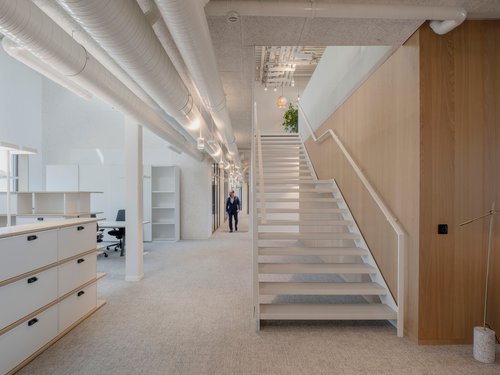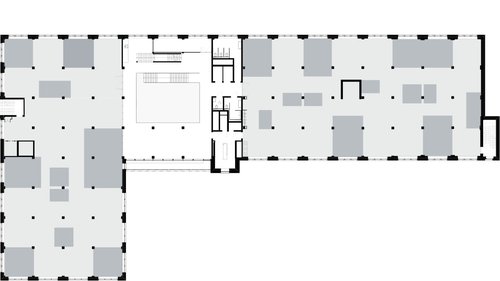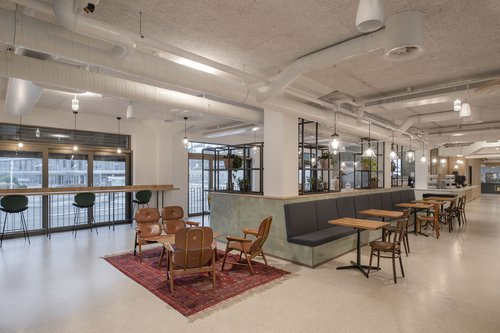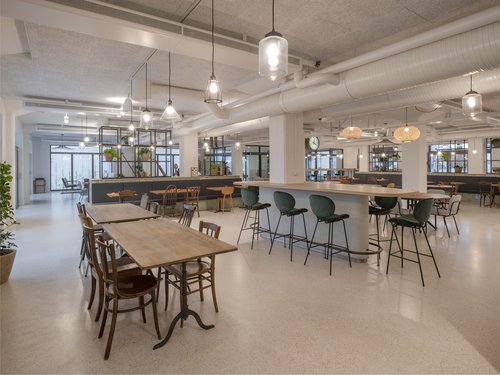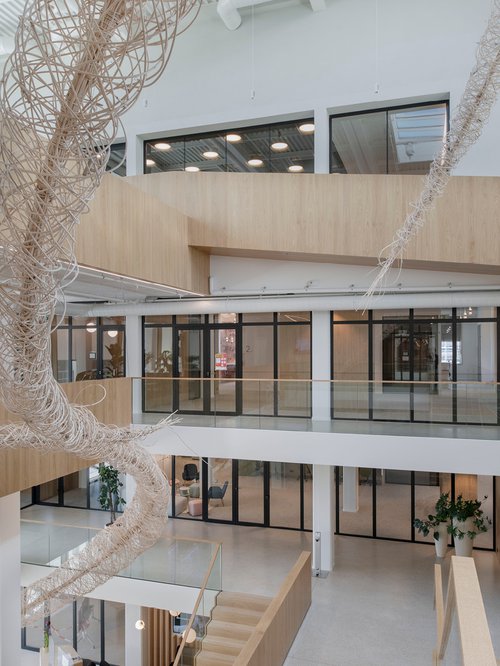
Transformation and interior design of the former Pastagala factory for Incyte Biosciences International
The building that housed the Pastagala factory in Morges was converted into an administrative building to lodge the European headquarters of Incyte Biosciences International.
CCHE, in charge of the interior transformation of the approximately 10,000 m2 surface area, has developed a project that preserves the industrial memory of the place and favours clarity and transparency. This project is part of the transformation of the shell of the building and the site jointly carried out by Tribu Architecture and CCHE.
The desire to preserve the memory of the building is present throughout the development of the project, from the choice of materials to the integration of the technique, with visible ducts running through it. The framework of the new developments is also inscribed in the base of the existing building.
This project is deeply linked to the development of the whole district annexed to the Morges station.
The desire to preserve the memory of the building is present throughout the development of the project, from the choice of materials to the integration of the technique, with visible ducts running through it. The framework of new developments developed in accordance with the company's culture and to promote the well-being of users is also part of the existing base.
The central trunk of the building, designed as the "Piazza di Spagna," becomes its core and heart. Instead of a lifeless representative atrium, this lung becomes the hub consisting of the entrance with its reception, work spaces, coffee-corner and foyers. It is treated as a wood course with a play of transparencies on the different living areas.
CCHE's various reflections on the evolution of work modes (smart work and well beeing) have made it possible to propose a tailor-made solution mixing different zones - open space areas arranged between conference rooms, go-to rooms or focus rooms - of various sizes and modularity to give users all the flexibility they need.
CCHE's signage
The USW impact handle, developed by the CCHE designers in 2012, offers a complete range to fit any type of door.
See the project
To accommodate its new use, the top floor of one part of the building is split into two. The existing structure is maintained raw, tinted white, with visible traces of the building's past. This rough side is contrasted by the addition of more elaborate materials in metal or wood.
The "Pasta Gala" brasserie, dedicated to the site's employees, is also open to the public to support the relationship with the city.
See the project list of mandataries
